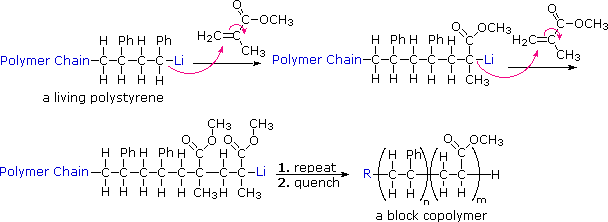Polymers in Building: Stronger, Lighter in weight, and A Lot More Long lasting
Polymers in Building: Stronger, Lighter in weight, and A Lot More Long lasting
Blog Article
Checking Out the Varied Applications and Benefits of Polymers in Different Industries
Polymers, with their diverse variety of residential properties and capabilities, have ended up being crucial in various markets, each reaping unique benefits from their application. Polymers. From improving safety and security and efficiency in the auto industry to revolutionizing clinical gadgets in the medical care market, polymers play an essential duty. Their eco-friendly nature is modifying the landscape of sustainability techniques. As we delve into the depths of polymers in electronics, we discover advanced advancements, while their structural honesty changes the world of building and construction and framework. The prevalent impact of polymers throughout industries is a testament to their convenience and flexibility, forming the future of many fields.
Automotive Industry Applications
Polymers play an essential function in enhancing the performance and resilience of various components within the automobile sector. One famous use of polymers in the auto sector is in the production of lightweight components.

Healthcare Market Benefits
In numerous medical care applications, the benefits of utilizing polymers are widely recognized for their diverse series of useful homes. Polymers play an essential function in the medical care industry due to their versatility, biocompatibility, and cost-effectiveness. Among the primary advantages of polymers in healthcare is their capacity to be tailored to certain demands, such as flexibility, resilience, and biodegradability, making them optimal for a large range of clinical applications.
Polymer-based materials are thoroughly utilized in clinical tools, such as catheters, implants, prosthetics, and drug shipment systems, due to their biocompatibility and capability to mimic natural cells. These materials can decrease the risk of allergies or beings rejected, improving individual safety and security and outcomes. Furthermore, polymers are lightweight, making them appropriate for wearable clinical tools and guaranteeing individual convenience.
Furthermore, polymers enable the development of cutting-edge treatment techniques, such as hydrogels for cells engineering and nanocomposites for targeted medication distribution. Their ease of handling and sanitation makes them necessary for maintaining high standards of health in medical care setups. On the whole, the diverse advantages of polymers add considerably to improvements in medical innovation and client treatment.
Ecological Benefits of Polymers

Moreover, polymers can add to energy cost savings due to their lightweight nature. In sectors such as transport, light-weight polymer materials can help reduce fuel intake and greenhouse gas emissions. Get the facts Furthermore, polymers can allow the growth of energy-efficient products such as insulation materials that improve power preservation in structures.
In addition, polymers play an important duty in lowering water contamination. The usage of polymer-based purification systems can efficiently get rid of contaminants and pollutants from wastewater, safeguarding water resources and environments. Overall, the environmental advantages of polymers make them useful possessions in promoting sustainability and eco-friendly methods across numerous markets.
Polymers in Electronic Devices and Modern Technology
Thinking about the boosting need for ingenious and lasting options in modern markets, the assimilation of advanced polymer technologies in the realm of electronic devices and innovation has become a pivotal strategy for driving effectiveness and performance. Polymers have actually reinvented the electronic devices market by making it possible for the manufacturing of lighter, much more adaptable, and sturdy electronic tools. From mobile phones to clinical tools, polymers play an important role in enhancing item design and capability.
One substantial benefit of polymers in electronic devices is their great site protecting properties, which assist secure delicate digital components from environmental factors and electric interference. Additionally, polymers are necessary in the advancement of adaptable display screens, wearable modern technology, and published electronic devices, offering endless opportunities for producing clever and interconnected devices.
Furthermore, making use of polymers in digital product packaging has actually caused advancements in miniaturization and thermal monitoring, boosting the overall performance and reliability of electronic systems. As technology continues to progress, the flexibility and adaptability of polymers will undoubtedly drive further advancement in the electronics sector, forming the future of technology.
Function of Polymers in Building and Facilities
Polymers use numerous benefits in the construction sector due to their adaptability, longevity, and cost-effectiveness. One key duty of polymers in construction is their usage in coverings and sealants, offering security against environmental factors such as moisture, UV radiation, and rust.
In addition, polymers play an important duty in sustainable construction practices by allowing the advancement of energy-efficient frameworks. Insulating materials made from polymers assist control indoor temperatures, lowering the need for heating and cooling down systems and ultimately her explanation reducing energy consumption. The usage of polymer-based composites in infrastructure projects such as bridges and roadways enhances their durability and lowers maintenance expenses. Overall, the unification of polymers in building and construction and framework displays their substantial effect on modern-day engineering techniques.
Final Thought
In final thought, polymers play a vital function in various industries such as auto, healthcare, environmental, electronics, and building and construction. From boosting fuel effectiveness in cars to improving clinical gadgets, polymers supply countless advantages.
Report this page